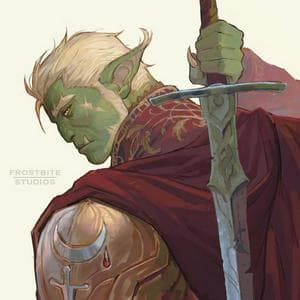Oak type de personnalité MBTI
Personnalité
"Quel type de personnalité est Oak? Oak est un type de personnalité ENFJ dans MBTI, 7w6 - so/sx - 379 dans Enneagram, SCUAI dans Big 5, dans Socionics."
Oh, Oak. You’re an adorably likeable bastard even despite your goat hooves. Mild spoilers ahead, for those of you who have not finished TSH yet. Oak is clearly an ENFJ, and if my arguments for his Fe-Ni usage won’t convince you of that, surely a cursory google search of ENFJ functions and a glance at his characterization in The Stolen Heir will show you all you need to know. For starters, his Fe is prevalent in literally everything he does—he’s naturally charismatic and charming, but rather than actively engaging this muscle to manipulate those around him, it’s almost a subconscious reflex. He can take any tense situation and settle it down—from guards to trolls to Queens to knights, Oak demonstrates repeatedly his ability to soothe conflict without coming across as intentionally conniving. Mbti-Notes on Tumblr describes healthy ENFJ Fe usage as follows: “Mature ENFJs are known for their ability to unite people. They are usually found addressing interpersonal conflict through dialogue and compromise, preferring to get everyone on the same page to achieve win-win scenarios. At their best, they are compassionate, forgiving, have great negotiation skills, and always try to bring out the good in themselves and others.” Oak repeatedly chooses friendship over contracts, and it’s not out of manipulative intent. He wants to form connections, and it is both his greatest strength and potential weakness. Don’t even get me started on the whole “becoming a lure for political assassins” bit that Tiernan revealed. However, that manipulative side DOES occasionally pop out, particularly demonstrated by this quote on page 227: “Too late, I understand what’s terrifying about his charm. He seems entirely open when he is unknowable. Every smile is painted on, a mask.” He doesn’t seem to like doing this, which is a testament to his character, but he’s good at it anyway. Further, his Ni usage is very strong (at least through the first half of the book) as his decisions and comments are often compared by Suren to those of a chess player. She comments on “feeling helpless, as though he’s herding [her] around a chessboard to checkmate” (228). He calculates the benefits and drawbacks of certain decisions, tempered by what he thinks others will do or say, and is able to formulate a course of action in his head that he can tweak along the way. I imagine his Se usage will crank up as the stakes continue to rise, and I’m interested to see how he’ll perform under moral conflict driven pressure.





















